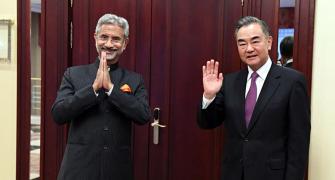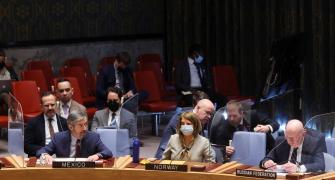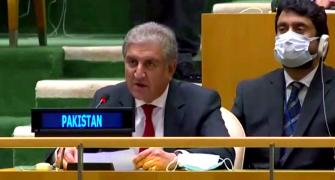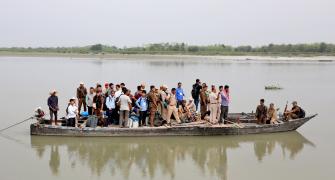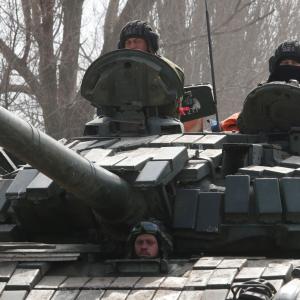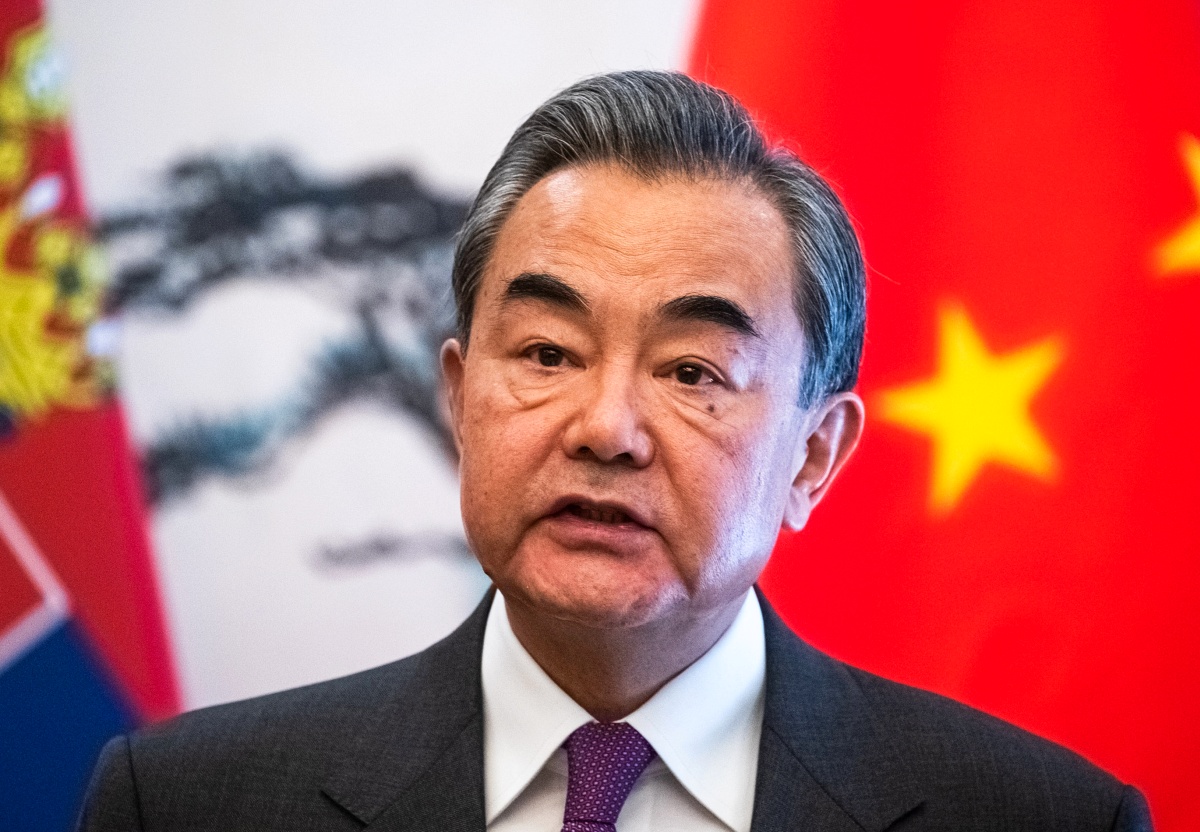Chinese Foreign Minister Wang Yi arrived in Delhi on Thursday evening in the first highest-level visit between India and China after their ties came under severe strain following the border standoff in eastern Ladakh nearly two years ago.
Wang flew into New Delhi from Kabul on an unannounced visit and is set to hold talks with External Affairs Minister S Jaishankar and National Security Adviser Ajit Doval on Friday morning.

It is learnt that the Chinese foreign minister's visit has more to do with the geopolitical turmoil in the wake of the Russian invasion of Ukraine than the bilateral ties.
Interestingly, there was no official word about Wang's visit from either the ministry of external affairs or the Chinese government. Both sides kept the visit under wraps.
At the Friday talks, the Indian side is unlikely to shift focus from the military standoff in eastern Ladakh as it is expected to press for complete disengagement of troops from all the remaining friction points in the region.
The border issue is likely to figure extensively at the meeting between Wang and Doval as they have been serving as the Special Representatives (SR) for boundary talks between the two countries.
The Ukraine crisis is expected to be the other major issue at the talks. Unlike many other leading powers, India has not criticised Russia yet for its invasion of Ukraine and also abstained from voting at the UN platforms in condemning the Russian attack.
It is also not immediately clear whether the Indian side will facilitate a call-on by Wang with Prime Minister Narendra Modi.
The visit also comes a day after India rejected as uncalled for Wang's comments referring to Jammu and Kashmir at a meeting of the Organisation of Islamic Cooperation in Islamabad.
China has close ties with Russia and it has been giving signals about its willingness to assist Moscow in dealing with the crippling economic sanctions announced by the US and other Western countries following the Russian attack on Ukraine that was launched a month ago.
Wang began a two-day trip to Pakistan on Tuesday primarily to attend a meeting of the Council of Foreign Ministers of the OIC as a special guest.
Following the conclusion of his trip to Islamabad, he travelled to Afghanistan and held extensive talks with Afghan leaders in Kabul on Thursday. The Chinese foreign minister is also scheduled to visit Kathmandu from March 25 to 27.
It was China that had sent a proposal to India for a visit to New Delhi by Wang as part of his tour of the region. Initially, India was learnt to be reluctant to accept the proposal.
In reflection of India's consistent position on ties with China, Prime Minister Modi on Monday told his Australian counterpart, Scott Morrison, at a virtual summit that peace and tranquillity in eastern Ladakh is an essential prerequisite for normalisation of India's ties with China.
At the 14th India-Japan summit on Saturday, New Delhi conveyed to Tokyo the same line that its ties with Beijing cannot be business as usual until peace is restored in the eastern Ladakh region.
India and China have held a series of diplomatic and military talks in the last one-and-half years to resolve the eastern Ladakh row.
Jaishankar and Wang held several rounds of talks in Moscow and Dushanbe to defuse tensions in eastern Ladakh during the period.
In September 2020, Jaishankar and Wang held extensive talks in Moscow on the sidelines of a conclave of the Shanghai Cooperation Organisation (SCO) during which they reached a five-point agreement to resolve the Ladakh standoff.
The pact included measures like quick disengagement of troops, avoiding action that could escalate tensions, adherence to all agreements and protocols on border management and steps to restore peace along the Line of Actual Control.
The two foreign ministers had held a bilateral meeting on the sidelines of another SCO meeting in Tajik capital city Dushanbe in July last year with a focus on the border row. They again met in Dushanbe in September.
India has been consistently maintaining that peace and tranquillity along LAC was key for the overall development of the bilateral ties.
Earlier this month, Wang said some forces have always sought to stoke tensions between China and India, in an apparent reference to the US.
On March 11, India and China held the 15th round of high-level military dialogue to resolve the pending issues in the eastern Ladakh region.
The border standoff between the Indian and Chinese militaries erupted on May 5, 2020, following a violent clash in the Pangong lake areas.
The face-off escalated after the Galwan Valley clashes on June 15, 2020. As many as 20 Indian soldiers and an unspecified number of Chinese troops were killed in the clashes.
Both sides gradually enhanced their deployment by rushing in tens of thousands of soldiers as well as heavy weaponry.
As a result of a series of military and diplomatic talks, the two sides completed the disengagement process last year in the north and south banks of the Pangong lake and in the Gogra area. Each side currently has around 50,000 to 60,000 troops along the LAC in the sensitive sector.

